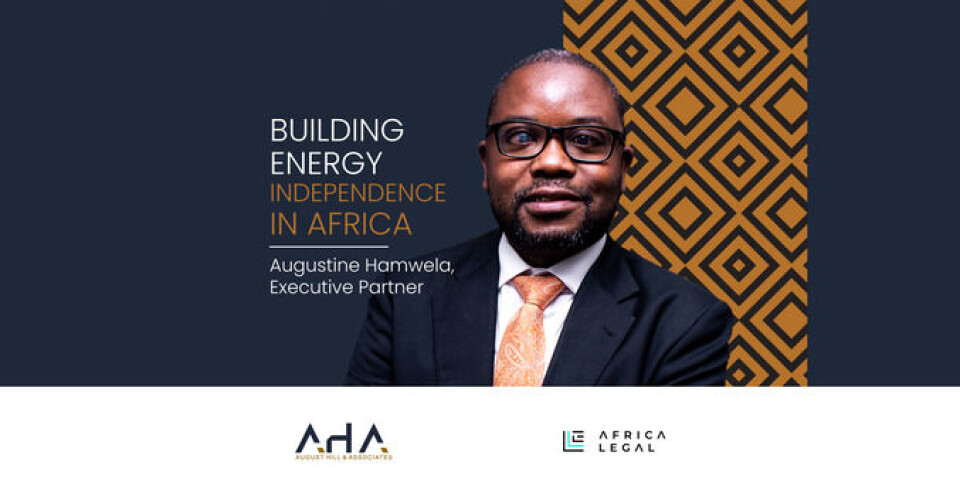With its abundant natural resources, burgeoning urban population and industrialisation, and investor-friendly landscape, Zambia offers many opportunities for companies and investors in the energy sector, says Augustine Hamwela, Executive Partner of August Hill & Associates.
“Our manufacturing, mining and agricultural sectors have a huge need for energy, so there’s a big opportunity for entrants to Zambia to come and invest in the country,” noted Hamwela. “Zambia has liberal laws and exchange controls, and a liberalised economy. There are a lot of public‒private partnership (PPP) opportunities and a huge opportunity to invest in fresh installed generation capacity.”
Hamwela highlighted that Zambia’s natural resources provide various options for the global energy transition from fossil fuels to renewable energy sources.
“Zambia has around 3 000 hours of sunshine a year, providing an ideal climate for solar energy projects. Our average wind speed is about six metres per second, so that’s also convenient for energy generation, and, while Zambia is landlocked, we have numerous lakes and rivers, providing a lot of ideal water bodies for hydropower generation. Our hydropower can go up to 6 000 megawatts potentially in terms of capacity to grow,” he said.
While hydropower has been the largest contributor to Zambia’s energy landscape since independence, and this renewable energy source generates more than 80% of the nation’s power, Hamwela says there are still issues and challenges. Less than half the 6 000 megawatt potential has been converted to installed capacity, some hydropower projects have stalled, and erratic rain patterns in recent decades have underlined the risk of being so reliant on hydro.
“That’s the vulnerability you have with hydro. Because of climate change, you have droughts and your water bodies and dams are not necessarily consistently full year-on-year,” he said. “Because of the inefficiencies the country has encountered on account of erratic rainfall, there’s been a huge drive towards adding other energy sources. So global energy transition isn’t the only reason there’s a drift in Zambia towards more solar and wind in terms of sources of energy.”
The various laws, regulations and evolving policies that touch projects in the energy sector make for a complex landscape where lawyers and advisors play a vital role, noted Hamwela,
“There are plenty of hoops you need to go through, so we help clients navigate those with compliance matrices and rule books to show their obligations, or the approvals they need to get to construct an energy project,” Hamwela explained. “We also help their business when it’s ready to take off, with financing options in this space, auditing the company’s health and compliance. This is a complex area of law, so you don’t have one- or two-page agreements; I’ve seen power supply agreements go into hundreds of pages. We help navigate mergers and acquisitions, antitrust and competition issues, just making sure they’re doing everything they need to.”
Looking ahead, Hamwela talks of a future where Africa is self-sustainable, harnessing its own resources, including minerals, oil and gas, and renewable energy. Hamwela said a key conversation topic at the recent Africa Energy Forum in Nairobi, and a big takeaway for him, is horizontal and vertical integration across Africa, so the continent can become energy independent.
To join Africa Legal's mailing list please click here

